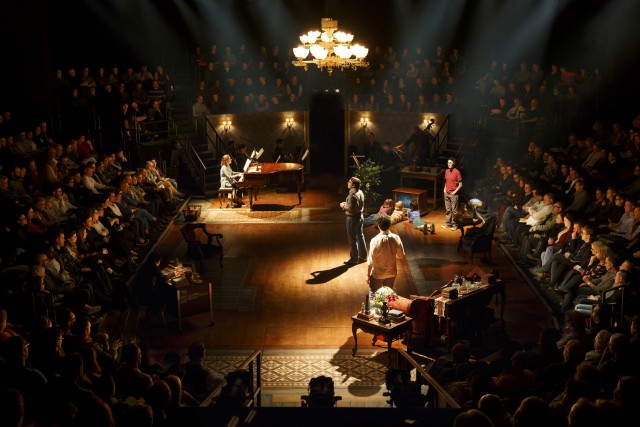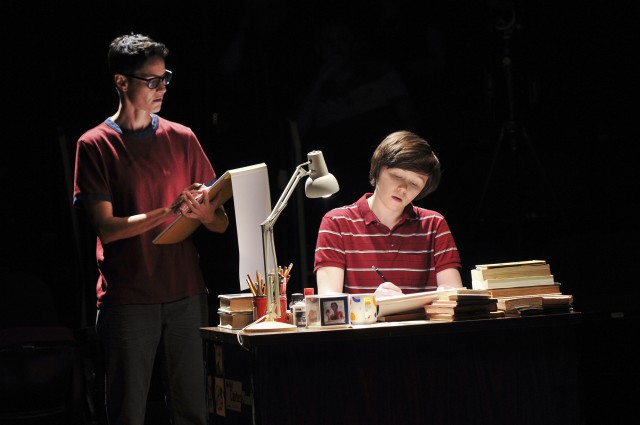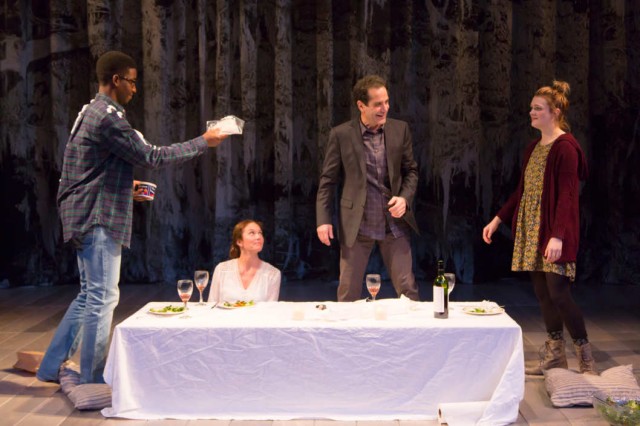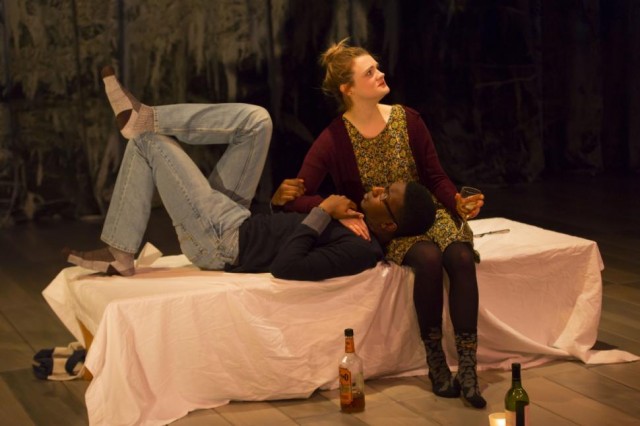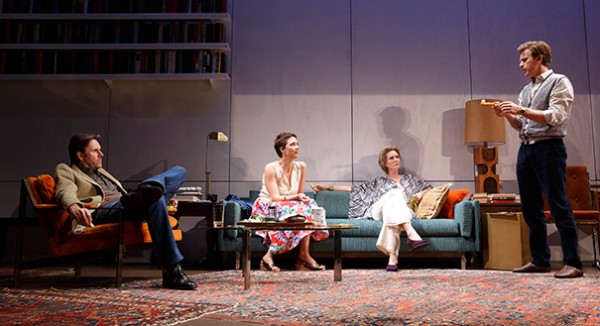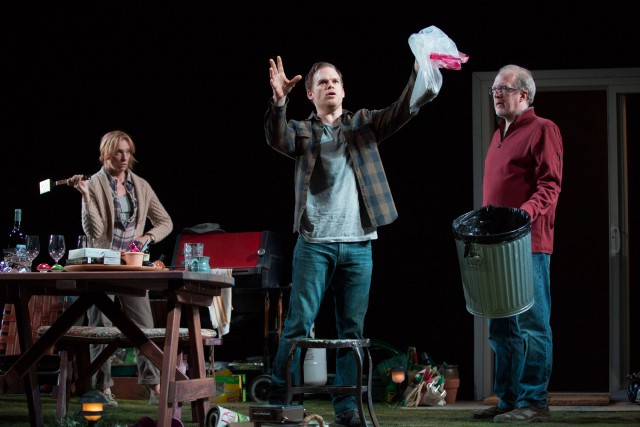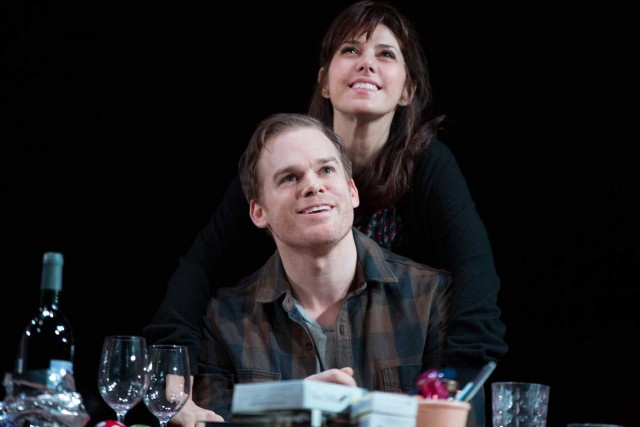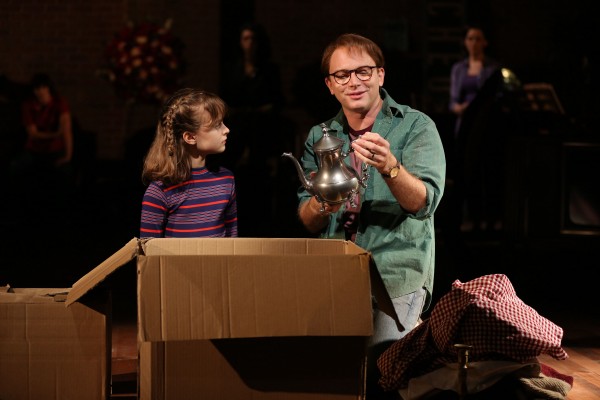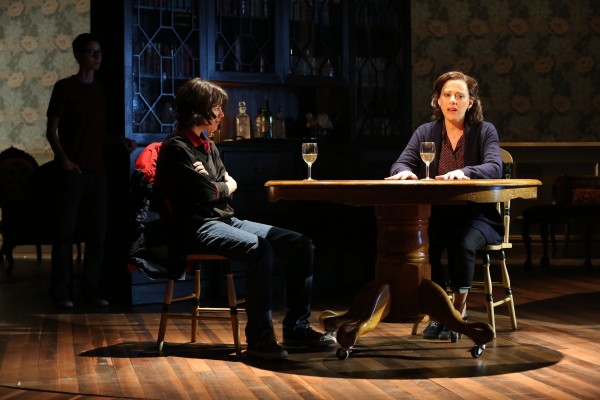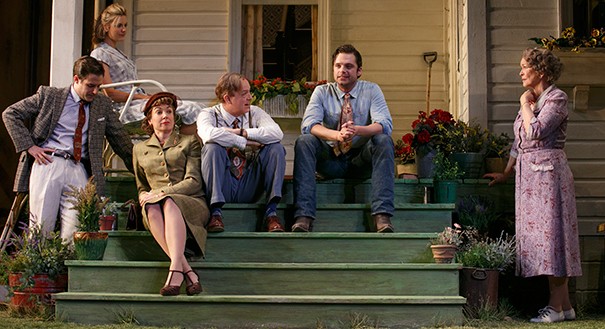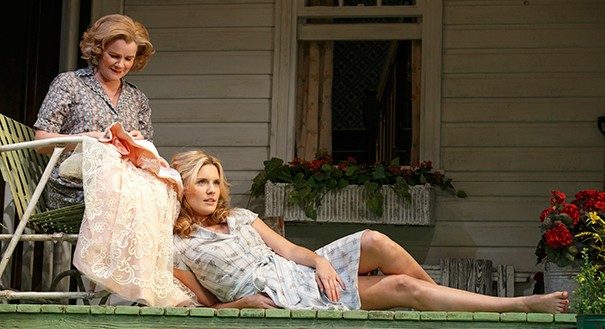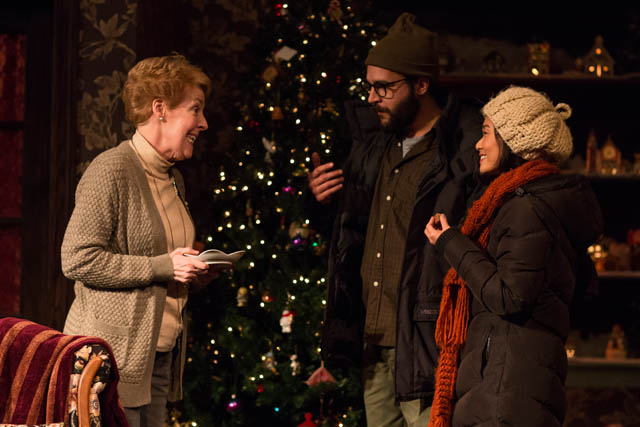
Everyone has a story to tell in world premiere of Annie Baker’s JOHN at the Signature (photo by Matthew Murphy)
The Pershing Square Signature Center
The Irene Diamond Stage
480 West 42nd St. between Tenth & Eleventh Aves.
Tuesday – Sunday through September 6, $25-$55
212-244-7529
www.signaturetheatre.org
“Tell me a story,” Jenny (Hong Chau) says to her boyfriend, Elias (Christopher Abbott), near the beginning of Annie Baker’s wonderful John, her follow-up to the Pulitzer Prize-winning The Flick. It’s a direct reference to what we, the audience, are essentially saying when we take our seats in a dark theater, something that Baker makes abundantly clear throughout John’s smoothly paced three-hour-and-fifteen-minute running time. Jenny and Elias have arrived at a tchotchke-filled bed and breakfast owned by the sweetly doddering Mertis (Georgia Engel) in Gettysburg, where the guest rooms are named for Stonewall Jackson, Abraham Lincoln, and Joshua Chamberlain. The Civil War setting is an apt metaphor for the battle between the sexes, as Elias and Jenny are tense and nervous, suffering through a rough patch in their relationship; Mertis, who prefers to be called Kitty, is on her second husband, although he is never seen or heard; and Kitty’s best friend, the blind Genevieve (Lois Smith), thinks that her ex-husband, John, has driven her legitimately insane, filling her brain with deadly scorpions. “Everyone knows someone named John,” Genevieve says, and indeed, we all do, with all the demons that implies. While Elias wants to explore the history of Gettysburg, Jenny complains that he chews his food too loud and that she is suffering through a bad period; more important, she is scared of one of Kitty’s myriad decorations, an American Girl doll named Samantha, the same model that terrorized her as a child. There is something unspoken between Elias and Jenny, a wall that is threatening to collapse all around them. Meanwhile, Genevieve believes that the house is haunted, as if personal ghosts, as well as those from the country’s deadliest war, are hovering in the air; although there are little touches of the supernatural amid Baker’s trademark hyperrealism, it’s really the characters themselves who are haunted.
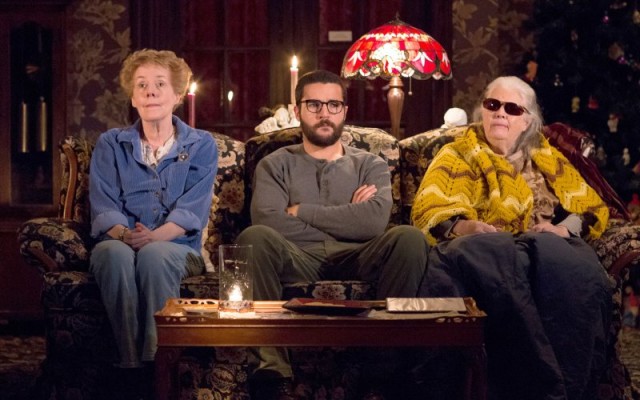
Kitty (Georgia Engel), Elias (Christopher Abbott), and Genevieve (Lois Smith) riff on theater and real life in Annie Baker’s JOHN (photo by Matthew Murphy)
Baker and regular collaborator Sam Gold, who has directed nearly all of Baker’s plays, including Circle Mirror Transformation, The Aliens, and The Flick, which has been extended through January 2016 at the Barrow Street Theatre, reveal the artifice behind the theater and the art of storytelling in John, making it a central focus of the narrative. Kitty opens and closes the curtain before and after each act, pushing and pulling it across the stage, and she regularly moves the hands of a grandfather clock to indicate time shifts, as Mark Barton’s lighting increases or decreases with the passing hours. (The set design is by Mimi Lien.) Kitty calls the breakfast nook next to the living room “Paris,” alluding to the magic of the theater, which can turn a New York City stage into a foreign land. “Do you ever feel watched, Jenny?” Kitty asks. “Like someone is watching you?,” a direct reference to the audience. A later joke, in which one character says to another, “What are you still doing there?,” is a riff on the audience still in their seats after more than three hours, experiencing this play that unwinds at the mundane speed of life. At the end of the second act, after Kitty has closed the curtain and the house lights have come on, Genevieve takes the stage and explains, “I’m going to tell you a story but I’m going to do it in under five minutes,” another funny reference to the length of John. Near the end, Jenny says, “I want to hear the rest of the story,” but Elias responds, “The rest of the story doesn’t exist yet.” Those lines get to the heart of Baker’s play, which is about both fictional storytelling and real life; the former usually comes with everything wrapped up in a neat little bow, but the latter does not always provide easy answers, if any answers at all. The actors are uniformly excellent, particularly Engel (The Drowsy Chaperone, Baker’s Uncle Vanya) in a role written specifically for her, and Gold’s (Fun Home, The Realistic Joneses) direction makes the hours go by surprisingly smoothly. John is a beautifully rendered work by an extremely talented playwright who’s got her finger firmly placed on the pulse of modern existence, and contemporary theater.
